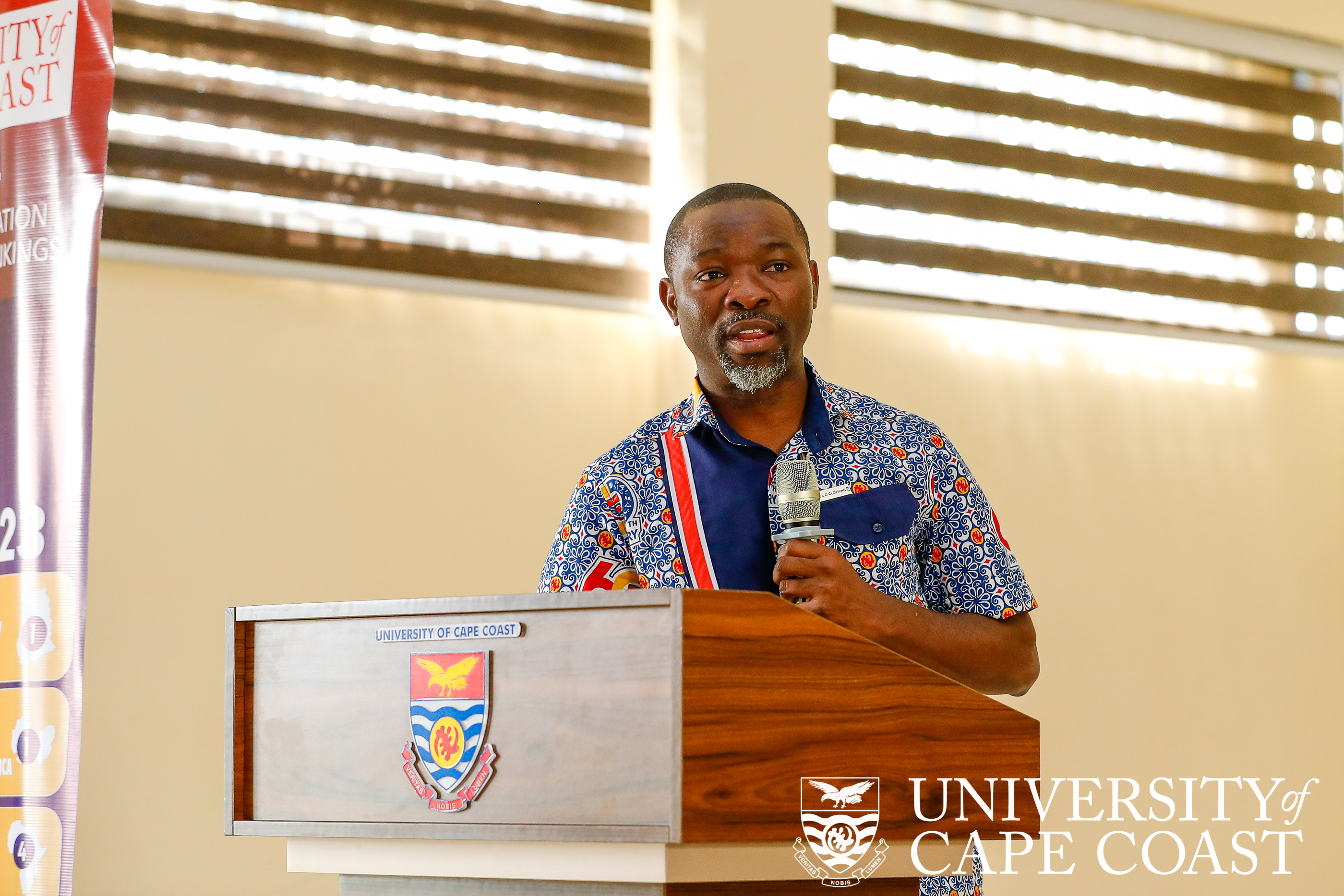The University of Cape Coast (UCC) has launched a five-year Corporate Strategic Plan (2023-2027) to guide the growth and development of the University.
The Corporate Strategic Plan, anchored on five main strategic objectives, is intended to reposition UCC as the global hub of innovative thinkers, offering demand driven programmes, integrated practical entrepreneur courses, among others.
The Corporate Strategic Plan mainly focuses on nine themes within the stipulated period to transform the University.
The nine strategic themes are: to promote entrepreneurial and enterprise development culture; enhance international visibility and diversity of the University; as well as to Promote responsible research, innovation and knowledge transfer.
The rest are to: promote sustainable development and financial management; re-engineer students support services, re-engineer staff support services, promote effective leadership and corporate governance, and promote sustainable environmental and physical infrastructure.
New Plan
A former Vice-Chancellor of the UCC, Prof. Domwini Dabire Kuupole, at the launch of the strategic plan at the School of Graduate Studies Auditorium, stated that the strategic plan was expected to guide the University to move towards achieving its vision.
According to him, the university had introduced three Corporate Strategic Plans in the past, namely 2003, 2012 and 2018 plans.
He mentioned visionary direction, adaptation to change, resource optimisation, enhanced collaboration within and outside UCC, as well as framework for measurement and evaluation as the five key reasons crucial for the success of any institution.
The former Vice-Chancellor, who was the Special Guest of Honour, maintained that the 2023-2027 strategic plan vision would come to fruition with effective leadership management.
Prof. Kuupole, therefore, pointed out “strong leadership commitment, involvement of all stakeholders, including faculty, staff, alumni and students and lastly, adapting management” as the three critical leadership issues that the University of Cape Coast should prioritise.
“The realisation of the Corporate Strategic Plan heavily depends on our collective commitment, dedication and adapting leadership,” he continued.
“Let us all come together to embark on transformative journey, shaping the future of education and creating a lasting impact on society.
For his part, the Vice-Chancellor, Prof. Johnson Nyarko Boampong, stressed that education must be agile, and be able to respond to societal shifts and industry demands.
“The plan lays the foundation for curriculum development that equips our students with the skills, knowledge, and adaptability needed to excel in ever-changing world,” he added.
“By fostering critical thinking, problem-solving, and creativity, we aim to empower our graduates to become leaders who drive positive change” continued the Vice-Chancellor.
Prof. Boampong called on all stakeholders in the University to put their shoulders to the wheel and ensure a smooth implementation of the Corporate Strategic Plan.
He, therefore, announced that plans were afoot for office holders in the University to attend a retreat in January 2024 to map out strategies to achieve the Plan.
The highlights of the Strategic Plan were presented by Prof. Daniel Agyapong, the Chairman of the 2023-2027 Strategic Plan Committee.
According to him, the Committee made broad consultations with stakeholders within and outside the University before the compilation of the Plan.
“…We have gone through the processes, through Academic Board to Council, so we are determined to position the University as a globally acclaimed University for innovative teaching, research, outreach and professional development,” he added.
Prof. Agyapong continued: “Currently with the new Corporate Strategic Plan, there is an element of environmental consciousness that have been added to the core values of the University”.`
Source: Documentation and Information Section




